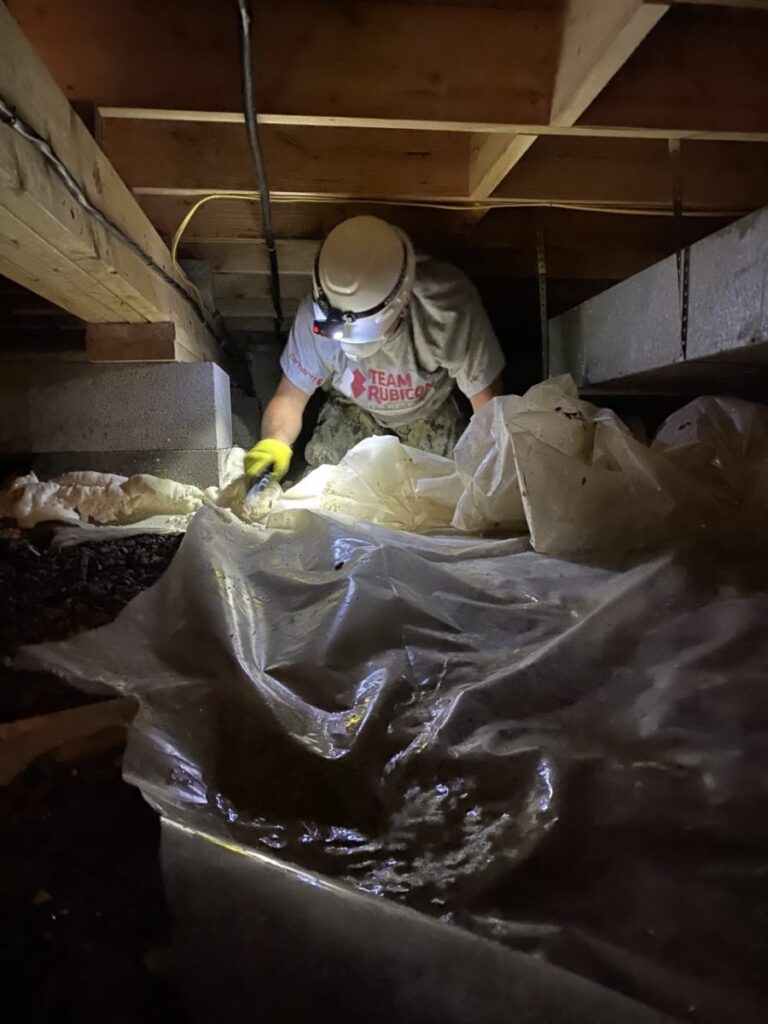I think service is an attitude, not an act. It’s not about what you do but why. There is nothing wrong with collecting a paycheck while providing service to people, to communities, or to the country. But if the intention is to get paid, that isn’t service. It isn’t wrong, but to me, it isn’t service.
Service is an intention to help people and make the world a better place, regardless of any monetary compensation, which is why volunteering is so rewarding. Some people cannot volunteer; some people must put their own needs first. But they may still do service because service is an attitude, not an act. I didn’t know this before I became a career public servant.
When I was in college, I needed my job at Home Depot to pay the rent and the tuition. I was “serving” customers, but I didn’t have that intention of service. This was also true when I entered the military: I needed the money to pay my college debt, and I had no idea what I was doing in terms of service. I just had to get through flight school.
Something changed once my student loans were paid off and I became a flight instructor. Suddenly, I wasn’t financially desperate, and I had an immense responsibility: to train those who would go to sea and defend the United States from the air. It was no longer about serving my own needs; it was about serving Naval Aviators and serving my country. The number one job of a flight instructor is to teach students to operate aircraft safely and use the emergency equipment to save their own lives. Some fellow instructors were better than me at teaching air-to-air combat tactics, but my focus with my students was that they understood how the airplanes work and what to do when there’s a problem. I wanted my students to be safe and effective in the air.

I also realized that Naval Aviators, merely by flying training missions over international waters, were implementing American foreign policy, demonstrating the ability of the U.S. Navy to project power overseas, and conducting lifesaving missions.
In 2011, after the Tokyo tsunami, my Lieutenants flew into clouds of radioactive particles to ensure the needs of Japanese civilians were met. Tomodachi. 友達. Friends. In the Japanese writing system, that first character—友 (tomo)—a depiction of two hands overlapping and helping each other in friendship.
Foreign humanitarian assistance is about a) service and b) preventing war. It’s the Global Force for Good. This defined my military experience.
Even after I retired from the Navy after 24 years of service, I couldn’t just stop being part of a Force for Good. I discovered Team Rubicon knowing I needed something to help me make the transition, and TR scratches that itch. When I deploy with Team Rubicon, I have the intention of service.
Greyshirts like me, who still have jobs (these days I work at Lowe’s), deploy for 10 to 20 days per year and the rest of the time are aching for the opportunity to deploy. Walking up a driveway and asking a homeowner, “what’s wrong?” listening to the answer, and saying, “we can fix that…” That’s priceless.
I love Greyshirts. Most of the Greyshirts I’ve met are former military, but the kick@$$ civilians? You can’t tell the difference. Same/same open hearts. Working 120% of capacity. We have roles and we know our roles. There is no such thing as rank or class in Team Rubicon, just different roles. They will make you Strike Team Lead on the third day of your first operation, whether you’re a civilian or a veteran.
“We” is the most important word. We do this. I am an individual Greyshirt, but it isn’t about me; it isn’t even about Team Rubicon. It is about the people we serve. Greyshirts take care of people, and Team Rubicon creates more Greyshirts to take care of more people. The more We the better.
We cut trees. We muck-out basements. They call them crawl-spaces because we crawl into them, and, as much as it sucks, it’s essential for helping homeowners. It’s service. We haul plaster and lath and moldy drywall to the curb. We do dirty work. We help people who we don’t know. And we are trained and ready to do it again and again. We get “stuff” done. We don’t do it for any kind of reward, which is great because we don’t get rewards. Service is an attitude, not an act.



